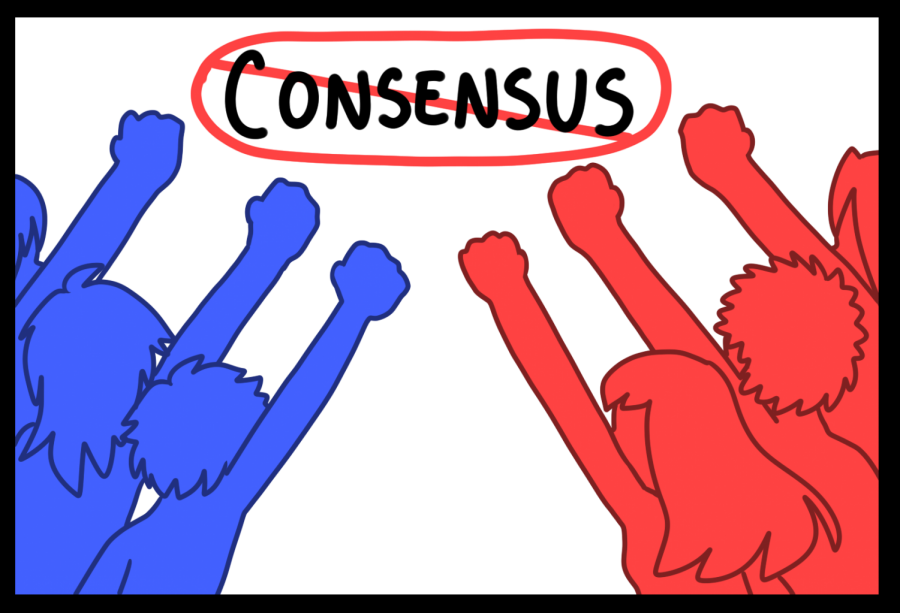Opinion of the Staff: Congress and Consensus
April 25, 2019
The 2016 presidential elections marked the beginning of a new chapter in American political discourse. Gone are the days of unity and compromise; it is now clear that our nation has entered a period of polarization and division. Amplified by the anger of an activated base, the era of consensus politics has resolved into bitter fighting and petty insults. Concession and accommodation are being killed like Caesar, stabbed to death on the floor of the Senate (although, in this case, the House of Representatives and the White House might also share some of the blame). Neither party has been immune to these new tactics of tweeting first and thinking later. In essence, while politicians theoretically should be attempting to create a better future out of a challenged past, making the world better for those who will come next, they have instead chosen to create a political stalemate. Thus, the question begs to be asked: what message are politicians sending the next generation about the ability to work together to find a common solution?
January’s government shutdown is perhaps the high water mark in America’s most elite leaders’ inability to find middle ground and come to mutual understanding. The president and congressional leaders could not, or would not, find a way to compromise. This resulted in a shutdown that S&P Nation estimated cost the American taxpaying body $6.8 billion a week. We argue that the cost was greater than that. Lost in the miasma of childish arguments was the idea that people from all political spectrums should be able to reach across the aisle to find a way to work together. If parents, teachers, and community members are advocating this idea to their children, why can’t they apply it to themselves?
There was another toll to this stubborn standoff. Because of the government’s inability to find a solution that satisfied each side, federal employees were furloughed, our Coast Guard lost funding, and national sites and buildings were closed. Ironically, unaffected were salaries paid to our federal politicians, who were able to keep their heads above the water throughout the shutdown. The unintended lesson being taught to America’s youth is that it’s okay to bring progress to an impasse as long as the people who get hurt aren’t us.
Disagreement is not an excuse for inactivity. Politicians who dig their heels in, more determined to be stubborn than to find solutions to problems, set a terrible example. No one can be successful when their attitude is “it’s my way or the highway.” And yet this attitude persists.
…..A study from the Pew Research Institute found that 40 percent of Democrats and Republicans belong to their respective party because they oppose the other one, not because they believe in the ethos of their party. In other words, a huge chunk of those who are politically active pursue a course of action, not with the idea of finding a viable solution to problems themselves, but just to prevent the opposition from succeeding. If I can’t win, no one can win. I’m taking all my toys and going home. That’s sad.
The eventuality is a more partisan, divided, and ill-mannered society. Politicians are responsible for our future and set the bar for how to get things done for the next generation. According to The Center for Information & Research on Civic Learning and Engagement, young voter turnout rose by 20 percent from the 2014 to 2018 midterms, so perhaps a change is on the horizon. Perhaps the increase in young voters will force a change in attitude. Or, if politicians won’t change, perhaps it will be up to young voters to change politicians.
As long as the rhetoric of hate and division continues to echo through the halls of government, our generation must be prepared to bridge the bitter and extreme divide ourselves. We’re better than stubborn name-calling. If our elected leaders won’t set a brighter example, we must set a more civil tone ourselves.




